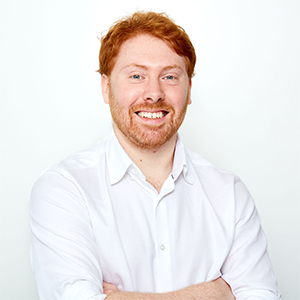How did you get your job at Appleyard Lees?
I was nearing the end of my PhD and didn’t have a clear idea of what I wanted to do. I had a few friends who had started working as trainee patent attorneys a couple of years before, so I thought it was worth investigating. IP wasn’t an area I had any previous experience in, so I arranged a chat with my friends working in the profession and barraged them with questions about the role, training, and their day-to-day responsibilities. Shortly after discussing the profession, one of my friends informed me about a vacancy at Appleyard Lees relevant to someone with my background. I applied by submitting my CV and a cover letter and was invited to a first interview. I was interviewed by two partners in the physics and electronics sector of the business. The interview was relatively informal and primarily consisted of questions relating to my experience. Some time was also spent identifying what I knew about the profession, career progression, and the general responsibilities of a patent attorney. Alongside the interview, I was tasked with drafting a description for an object to assess my use of language and general ability to describe things. Following a successful interview, I was invited back for two days of work experience at the firm. Over these two days, I was given several tasks that included checking through examination reports from the European patent office, checking the validity of the Examiner’s objections, and highlighting differences with the client’s application. I was also tasked with drafting a description for a more complex device. During this time in the office, I met current trainees, part qualified and qualified attorneys, and support staff. This gave me a good idea of how well I would fit in if I were to be offered the job. I immediately noticed how friendly and welcoming everyone was. Shortly after the work experience stage, I was offered the job and happily accepted. I’ve been at the firm for eight months and have settled in with no issues. The support here has been fantastic, and I’ve been encouraged to pursue areas of personal interest alongside working with our main clients.
What is it like working at Appleyard Lees?
Appleyard Lees has been a great firm to work for and one of the things that stand out is how supportive everyone has been. As a trainee, it’s natural to have lots of questions and feel quite uncertain initially, especially if this is your first job in the profession. I’ve asked my colleagues so many questions and there has never been an issue with getting the help I’ve needed. I’m also very fortunate to be working in a team that handles a diverse range of work including consumer electronics, medical devices, and heavy machinery. The varied exposure to these different areas of technology has provided a consistent level of intellectual stimulation and has allowed me to continue to use my scientific background. Alongside learning about patent law, I’ve been able to pick up a lot of general technical knowledge from working in a range of different areas of technology that I would’ve never learned about otherwise. Deadlines are a large part of the job so the type of work I do varies depending on the needs of our team and my supervising partner. Appleyard Lees has also enabled me to explore my areas of personal interest and work on business development in those areas. Everything we do is client-based, and one of the best parts of the job is meeting inventors to discuss their inventions. Overall, Appleyard Lees has been a warm and welcoming place to enter the profession.
What skills have you found to be particularly useful in this sector/profession?
There are several key skills that I believe to be essential for success as a patent attorney. Some of these characteristics, such as being self-disciplined and self-motivated, have undoubtedly become more important now that most of us can work from home. A large part of the job revolves around meeting deadlines, either from clients or patent offices, time management is imperative. It’s also important to possess the ability to absorb and understand complex technical information and then communicate ideas effectively and efficiently. Having close attention to detail is a real advantage. Most of our work is done alone. However, the ability to collaborate effectively is also good to have as it may be necessary in some interdisciplinary cases. I was fortunate to have worked in an interdisciplinary area of research before joining the profession. This provided me with a good foundation for most of these skills.







